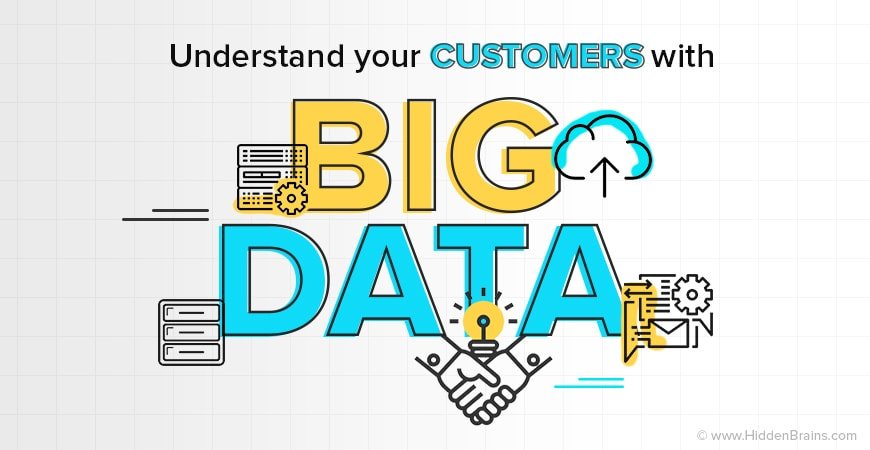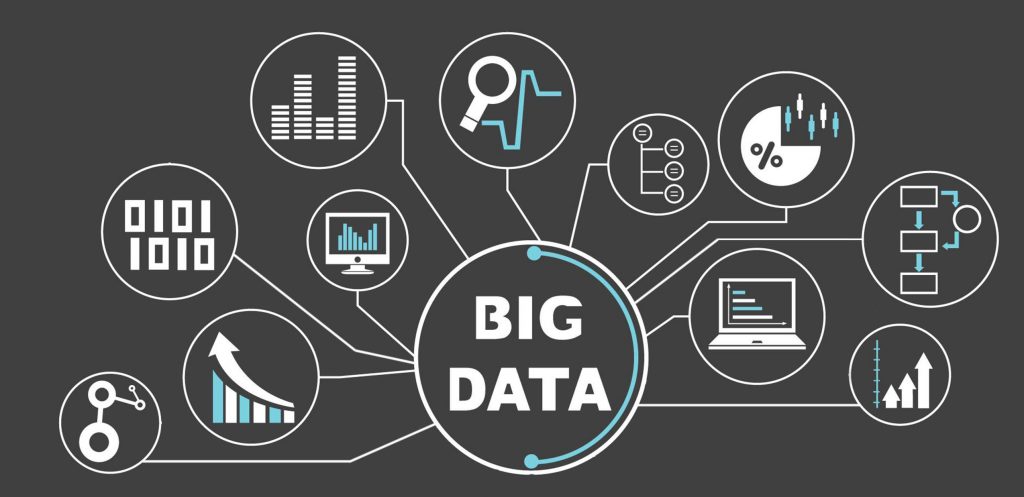 The signs have been present for a long time now. You may have seen these signs in mainstream media or come across references from people you know. You could even have been actively following developments. Love it or hate it, big data is now a part of the business environment. The most successful businesses of today are those that have taken the big data future into account.
The signs have been present for a long time now. You may have seen these signs in mainstream media or come across references from people you know. You could even have been actively following developments. Love it or hate it, big data is now a part of the business environment. The most successful businesses of today are those that have taken the big data future into account.
Companies like Google and Amazon lead the line of big data-driven businesses. If their success is considered, there is immense value in making big data analytics a part of your business operations. The prevalent belief in relation to big data, however, is that it can only be leveraged big firms with deep pockets. Nothing can be farther from the truth, especially these days.
The Primary Challenge with Preparing For the Big Data Future
The biggest challenge pertaining to big data is the technical knowhow. For a long time, being prepared for the big data future meant incorporating cutting-edge data gathering and data processing capabilities into the business’s operations. This has changed in recent years because data gathering and data processing have become less complex and time-consuming.
Even though data gathering and processing have been simplified to the management of web apps and software suites, it still requires an understanding of the surrounding technology that most businesses don’t possess.
Perhaps, a bigger challenge in preparing for the big data future is the mind-set. A business that tries to hedge bets with big data will never commit to a sea-change in its established systems. In order to truly leverage the big data future, a business needs to integrate core data principles with the existing systems.
Without the proper commitment to the cause, even technical knowhow is not acquired properly. This is where most businesses falter. Don’t let this fate befall your business. Here are a few ways you can prepare your business for the big data future.
Prioritise Formal Analytics Education
 Recruitment is where your quest to prepare your business for the big data future should begin. The reason for this is simply that hiring someone with an analytics degree from a reliable educational institution will simplify the entire process for you. Such an individual will already have the requisite basics and core fundamentals pat, which will make it easier for your organisation to innovate.
Recruitment is where your quest to prepare your business for the big data future should begin. The reason for this is simply that hiring someone with an analytics degree from a reliable educational institution will simplify the entire process for you. Such an individual will already have the requisite basics and core fundamentals pat, which will make it easier for your organisation to innovate.
The problem here, obviously, is that big data and analytics are still primarily enterprise level concepts. They haven’t properly filtered down the education industry to be offered as traditional courses. This means that analytics and big data-focused courses won’t be very common.
Some courses will exist which means that you should be able to find candidates with such credentials. More importantly, such candidates will end up being key assets for any business looking to leverage the big data future.
Make Analytics Experience A Recruitment Criterion
 A degree in big data or analytics will give people theoretical knowledge but what they really need is practical experience. No amount of theory is going to supplement actual hands-on analytics experience. In this regard, there are two bigwigs that you need to look for – Google Analytics and Adobe Analytics.
A degree in big data or analytics will give people theoretical knowledge but what they really need is practical experience. No amount of theory is going to supplement actual hands-on analytics experience. In this regard, there are two bigwigs that you need to look for – Google Analytics and Adobe Analytics.
You want your employees to have experience in either of these analytics systems. Google Analytics is important because it caters to the vast majority of online businesses and data researchers. Adobe Analytics is important simply because it is so elite in nature. Adobe Analytics is very expensive and, thus is only used by a few.
However, data analytics, believe it or not, is as much about innovation and creativity as it is about existing practices. There are analytics experts that can come up with startling revelations just by manipulating simple metrics. This is why Google Analytics and Adobe Analytics are on par and what you should look for experience and creativity.
Ensure Completion of Analytics Academy from Google
 Google Analytics is incredibly advanced, despite the fact that it is free. To make all its features accessible to the vast number of users online, Google has created an in-depth tutorial on how to use it. This tutorial is called the Analytics Academy. Going through this academy should be a mandatory requirement for all your employees involved in any kind of data gathering or processing.
Google Analytics is incredibly advanced, despite the fact that it is free. To make all its features accessible to the vast number of users online, Google has created an in-depth tutorial on how to use it. This tutorial is called the Analytics Academy. Going through this academy should be a mandatory requirement for all your employees involved in any kind of data gathering or processing.
The first thing that most dedicated and serious analytics professionals do is complete Analytics Academy from Google as it is. They top it off by finishing the Google Analytics Individual Qualification test. This is something that should be non-negotiable when you’re hiring new professionals as well as when you’re appraising existing employees.
Hold Regular Professional Workshops
If you already have analytics ready professionals in your business, then you’re already on your way. However, this doesn’t mean that your business is prepared for the big data future. This just means that you’re ready for the big data present. Big data and data analytics are disciplines that are very fluid.
Professionals, experts, and even newbies are constantly changing the game and coming up with new and innovative ways of looking at data. Preparing for the big data future also means being prepared for all developments and advancements.
There is only so much that your employees will be able to learn while they’re on the job. On a daily basis, they’re implementing the strategy. They rarely get time to augment their knowledge except by way of trial and error. However, you can support their efforts to improve their knowledge by arranging workshops on big data and analytics on a regular basis.
This is a sure-shot way of ensuring that your business’s collective analytics knowledge is increasing at regular intervals. At the same time, by way of workshops, you refresh their existing knowledge and solidify their fundamentals.
Schedule Weekly Analytics Meetings
 An analytics or big data-driven business incorporate those elements in everything it does. In fact, the focus of such a business will always be analytics and big data. Everything that such a business will do will be backed by solid data and statistics. This includes everything from customer relations and marketing to human relations.
An analytics or big data-driven business incorporate those elements in everything it does. In fact, the focus of such a business will always be analytics and big data. Everything that such a business will do will be backed by solid data and statistics. This includes everything from customer relations and marketing to human relations.
For such an elaborate focus on analytics and big data, the business will need to have analytics-based meetings on a regular basis. In different words, their strategy meetings will, in reality, be analytics meetings as well because their decisions are being informed by data that they’ve gathered and processed.
Therefore, if you truly want your business to be prepared or the big data future, you need to make weekly analytics meetings the norm rather than the exception.


Leave a Reply